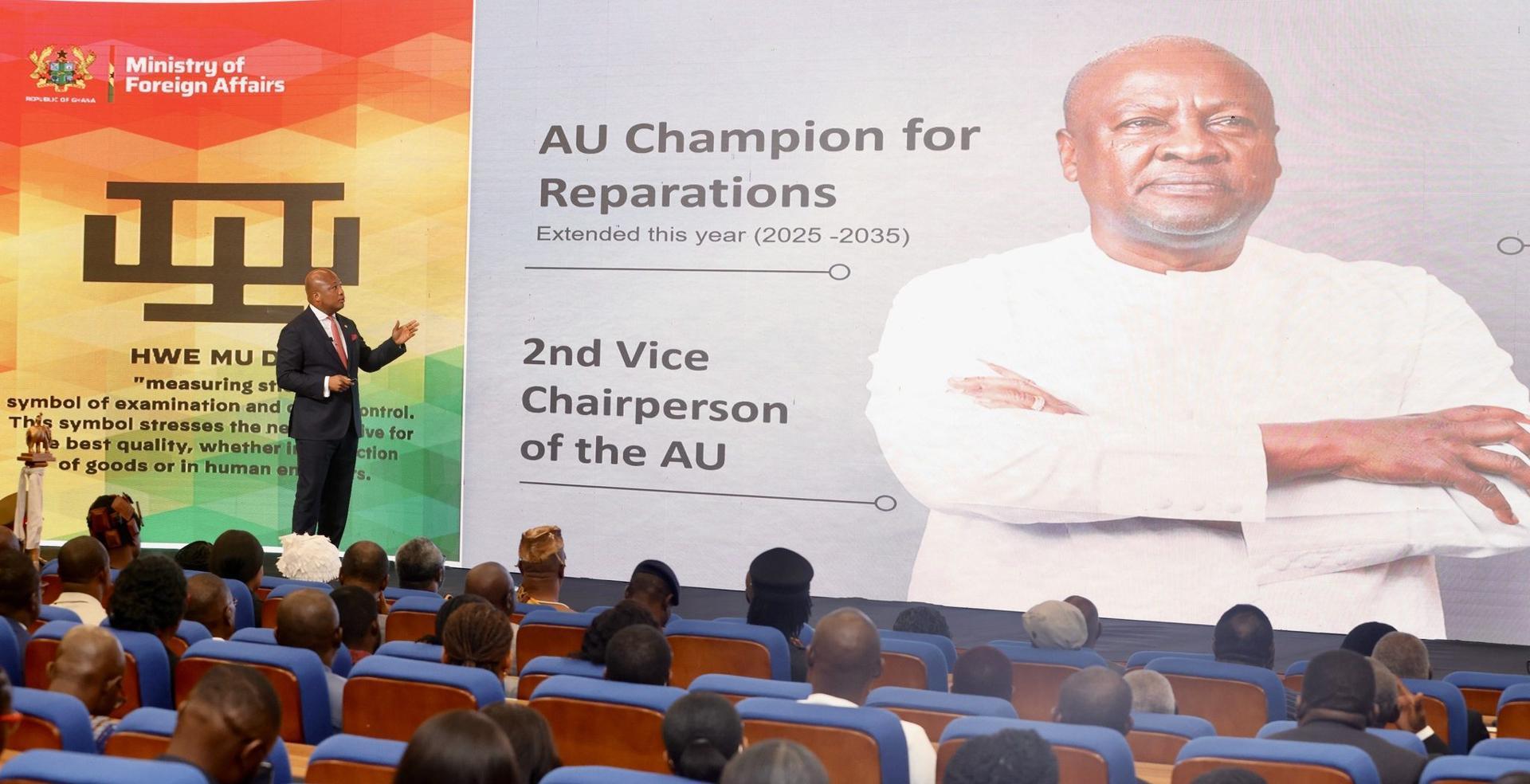Africa-Press – Ghana. Mr. Samuel Okudzeto Ablakwa, the Minister for Foreign Affairs, has charged Ghana’s Heads of Mission and newly appointed envoys to lead the country’s “reset agenda” by projecting Ghana’s values, attracting investment, and strengthening bilateral and multilateral relations across the globe.
He said diplomacy must no longer be viewed only as a tool of statecraft but as a strategic engine to drive trade, investment, and cultural exchange, as well as a channel for mobilising the Ghanaian diaspora for development.
According to him, the nation’s diplomats, both career and non-career, were at the frontline of efforts to secure the dividends of diplomacy and reposition Ghana in an increasingly competitive international arena.
Mr. Ablakwa, speaking at opening a five-day Conference of Heads of Mission and Orientation Programme at the Ministry of Foreign Affairs for newly appointed envoys in Accra, said President John Dramani Mahama’s vision of a national reset must permeate all sectors of governance, including diplomacy, to reposition Ghana as a respected and competitive player in global affairs.
The orientation programme, which runs until September 5, is being held under the theme: “Harnessing the Dividends of Diplomacy for Ghana’s Reset Agenda.”
It seeks to equip the envoys with the necessary skills and tools to effectively pursue the country’s foreign policy objectives, attract investment, and forge stronger partnerships for national development.
The Conference of Heads of Mission is an annual platform for Ghana’s envoys to deliberate on strategies to advance the country’s foreign policy objectives.
This year’s edition is combined with an orientation programme for newly appointed ambassadors and high commissioners, who will receive briefings from experts on international relations, trade and investment promotion, diaspora engagement, and cultural diplomacy.
Ghana currently operates 75 diplomatic missions worldwide, 13 high commissions, 48 embassies, and 14 consulates, a steady growth from fewer than 10 missions at independence.
President Mahama also unveiled Ghana’s first-ever KPIs for envoys, setting over 500 measurable benchmarks, including securing scholarships and raising tourist arrivals by 10 per cent annually all geared towards advancing his Reset Vision for the country.
Mr. Ablakwa congratulated the appointees, describing their selection as a rigorous process that had received 100 per cent acceptance from host countries.
He stressed that the appointments reflected confidence in both Ghana’s democratic credentials and the calibre of individuals chosen.
He said, “there are very few people in our lifetime who will be considered worthy to be appointed ambassadors,” citing the constitutional, security, and international vetting processes that each nominee underwent.
“President Mahama’s choices have been excellent, as all agreements have been confirmed without rejection,” Mr Ablakwa added.
He said the reset agenda required envoys to reimagine diplomacy not only as traditional statecraft but also as a tool for trade, business promotion, cultural exchange, and diaspora engagement.
The Foreign Minister outlined government’s commitment to expanding Ghana’s diplomatic footprint, announcing new consulates to be opened in Singapore, Dublin, Massachusetts, and Lisbon to better serve Ghanaians abroad and enhance trade.
The Minister noted that under President Mahama, the balance between career and non-career ambassadors had improved significantly, achieving a 55-45 ratio in favour of career diplomats.
“This is among the best in our history and reflects the President’s commitment to the professional aspirations of our foreign service officers,” he added.
On reforms, Mr. Ablakwa highlighted the introduction of chip-embedded passports, e-tracking systems, and courier delivery services, which had eliminated middlemen and drastically reduced processing delays.
He announced plans for the rollout of e-visas in 2026 to facilitate travel and position Ghana as “open for business again.”
The Ministry, he said, was also implementing STRIPE, a strategic transition from renting to owning properties abroad, to reduce the $50 million annual expenditure on rental facilities.
He stressed that Ghana would no longer sell off state assets but would protect and develop its foreign property portfolio.
“In addition, we have restored the Bureau for Culture, Linguistics and Tourism within the Ministry to enhance multilingual capacity, promote cultural diplomacy, and strengthen our international representation,” he said, adding that traditional values and heritage would form a key plank of Ghana’s global engagements.
The Ga Mantse, King Tackie Teiko Tsuru II congratulated the envoys on their appointments and reminded them that they had the responsibility of carrying Ghana’s global brand of integrity, dignity, and rich cultural heritage.
He urged the envoys to project Ghana’s values of hospitality, discipline, and respect, while actively pursuing opportunities in trade, investment, and development partnerships.
The Ga Mantse welcomed the introduction of key performance indicators (KPIs) for Heads of Mission, describing it as a shift from ceremonial diplomacy to results-driven engagement.
He further called for reciprocity in immigration agreements and urged greater efforts to promote inter-African trade, which he said still held immense potential.
He advised the envoys to confront challenges openly rather than sweeping them under the carpet, stressing that Ghana’s diplomacy could only deliver lasting benefits if it addressed difficulties with courage and honesty.
For More News And Analysis About Ghana Follow Africa-Press







